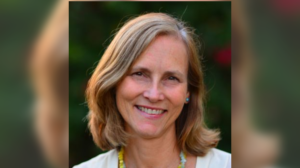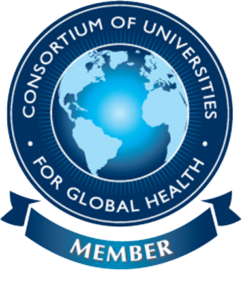Adjunct faculty member, Dr. Linda Lloyd, was recently appointed to the National Academy of Sciences’ Forum on Microbial Threats.
Dr. Lloyd has lived around the world, growing up in both Asia and the United States, living in Ecuador and Mexico, and working throughout Latin America. Trained as a behavioral scientist with her primary interest in interventions focused on creating behavioral changes, she had not considered vector control efforts until her doctoral degree. “An opportunity for my dissertation project came up to design, implement, and evaluate a community-based Aedes aegypti control program for dengue prevention in Mérida, Mexico,” Dr. Lloyd explained. “[From there,] I fell in love with the complexity and challenge of working with mosquito-borne urban diseases.”
Regularly consulting for the Pan American Health Organization (PAHO) and World Health Organization (WHO), Dr. Lloyd is involved in multiple ongoing projects. As a member of the Lancet Commission on Dengue and other Arboviral Diseases, she brings her expertise in behavior change to this multidisciplinary group alongside experts in topics ranging from epidemiology to immunology to urban planning. The commission’s upcoming report on novel mosquito control approaches will focus on local urban planning and management strategies to reduce the burden of dengue, chikungunya, Zika, and other mosquito-borne diseases. Dr. Lloyd has also been active in water and sanitation health projects through VIIDAI, the international collaboration between volunteers, non-profit organizations, students and faculty from San Diego State University, University of California – San Diego, and Universidad Autónoma de Baja California to address public health concerns in San Quintín, Baja California. Working with the start-up company Aquacycl to install a reverse osmosis treatment system to provide drinking water at a local elementary school, Dr. Lloyd’s efforts with VIIDAI are now shifting towards installing a wastewater treatment system at the school. Throughout much of this work, she taught a doctoral level Global Health course (PH 780).
Her unique combination of work experience and teaching were pivotal factors in her appointment to the National Academy of Sciences’ Forum on Microbial Threats. “It is a great honor to be appointed to the forum,” Dr. Lloyd reflected, “especially since the [NAS] report Emerging Infections: Microbial Threats to Health in the United States … was very influential early on in my work in vector-borne and infectious diseases.” The forum organizes in-person and virtual public-facing workshops twice annually, recordings of which are available online.
In reflecting on the arc of her career, Dr. Lloyd stated, “Everyone will have challenges in their career.” She emphasized that the same approach she learned for designing public health interventions can be just as applicable to career navigation: gather data, assess, make informed decisions. Although her career took her through some unexpected twists, when it comes to working in vector control programs, Dr. Lloyd remarked, “I found my niche.”






